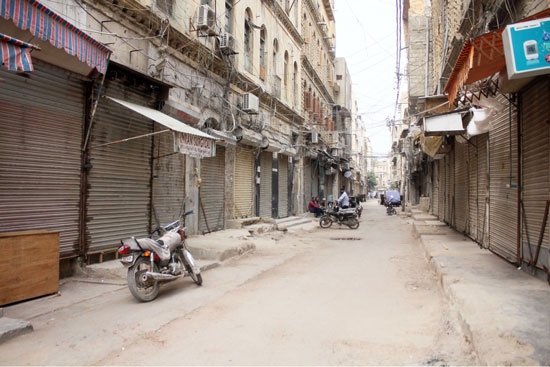Staff Reporter
Karachi
A two-day shutter down strike against the controversial tax reforms being pursued by the government of Prime Minister Imran Khan began on Tuesday, bringing commercial activities to a standstill across Pakistan.
Most markets, shopping centres, and shops remained shut in Islamabad, commercial capital Karachi, Lahore, Peshawar, Quetta, Faisalabad, and even several cities of Azad Jammu and Kashmir.
“The [Pakistan Tehreek-e-Insaf] government has destroyed our business and many traders have closed their shops due to high taxes and price hikes,” Mehar Elahi, president of a traders association in Khyber Pakhtunkhwa, told media over the phone.
“This is a message for the government that we are not happy with their policies,” Gohar Ali, a shopkeeper in the capital Islamabad, said. PM Imran’s cash-strapped government, which is already facing a tax shortfall of Rs500 billion (slightly over $7 billion), says it will not retreat from its economic and tax collection policies.
Opposition and traders accuse the two former IMF employees – finance adviser Dr Hafeez Shaikh and the governor of the central bank Reza Baqir – of toeing the IMF’s agenda to “destroy the country’s economy”.
Under the bailout package, the government will no longer control the dollar value against rupee (local currency). Instead, it will be dealt by the open market.
Also, the government is bound to withdraw exemptions offered in various taxes amounting to around Rs350 billion in the budget for 2019-20.
Islamabad’s current external debt stands at over $100 billion – the bulk of it borrowed from the World Bank, IMF, Asian Development Bank, Islamic Development Bank, the US, China, France, and other countries.
Pakistan has also conceded a loss of $100 billion since 2002 after it joined the US-led war against terrorism.
Due to the deadlock between the All Pakistan Traders Association and Federal Bureau of Revenue, traders across the country are observing a two-day shutter-down strike on Tuesday and Wednesday.
At a press conference held at the office of the Karachi Electronics Dealers Association on Monday, President Rizwan Irfan said the traders issues were not being resolved for the last six months due to poor economic policies of the government. These include duties and taxes on traders of old mobile phones, sales tax registration for six months, prerequisite of the Computerised National Identity Card for purchase of over Rs 50,000.








